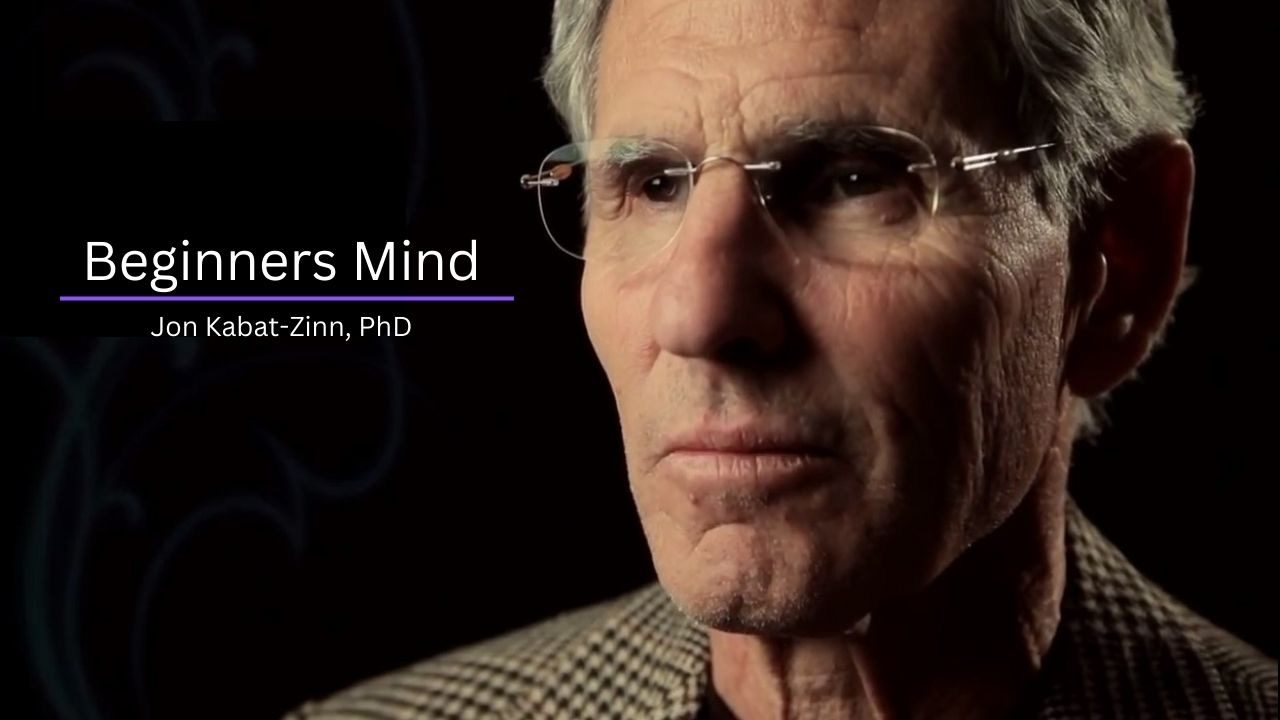Foundational Attitudes of Mindfulness Beginner’s Mind (3 of 9)
Jon Kabat-Zinn talks about the attitude of mindfulness "beginner's mind" what it means and why it is important.
In the previous videos, Jon Kabat-Zinn introduced us to the “first” and “second” attitudes of mindfulness, non-judging and patience. In this video, Jon Kabat-Zinn talks about the third attitude of mindfulness, that of “beginner’s mind.”
Kabat-Zinn starts by pointing out that “beginner’s mind” is an orientation of how we view emergent experiences with fresh, new eyes as if we have never had the experience before, which is a very difficult thing to do. Why?
Because our minds are naturally conditioned to view and interpret things and situations, we encounter through our past experiences with them.
This in of itself might not be a bad thing. However, in certain situations, it might rob us of the ability to remain open and flexible to new possibilities and outcomes due to a pre-existing script of how a situation will develop based on past our expectations.
In the book “Full Catastrophe Living” Jon Kabat-Zinn (2013) writes,
“Too often we let our thinking and our beliefs about what we “know” prevent us from seeing things as they really are. We tend to take the ordinary for granted and fail to grasp the extraordinariness of the ordinary. To see the richness of the present moment, we need to cultivate what has been called “beginner’s mind,” a mind that is willing to see everything as if for the first time.” (p. 35)
And when we adopt this “beginner’s mind” with time, we come to see that no moment is exactly the same as any other, and each one is unique in its own way. Coming to this realization allows for a more receptive, open attitude towards emergent experiences and new possibilities these might bring with them.
Ultimately, viewing things with a beginner mind might be helpful in disengaging from the over-analytical mind, which tries to constantly interpret and predict the multitude of potential outcomes that might result, preventing us from getting caught up in the rut of our own expertise and seeing things for what they really are.
Because of this, “beginner’s mind” is one of the important attitudes we need to bring into our meditation practice. As Kabat-Zinn (2013) comments,
“Whatever the particular technique we might be using, whether it is the body scan or the sitting meditation or the yoga, we should bring our beginner’s mind with us each time we practice so that we can be free of our expectations based on our past experiences. An open, “beginner’s” mind allows us to be receptive to new possibilities and prevents us from getting stuck in the rut of our own expertise, which often thinks it knows more than it does. No moment is the same as any other. Each is unique and contains unique possibilities. Beginner’s mind reminds us of this simple truth.” (p. 35)
And as John Kabat-Zinn further explains in the video how, adopting this attitude of “beginner’s mind” in daily life might also benefit our relationship with people around us.
Video produced by Mindfulnessgruppen, reproduced with permission. Please visit their website @ www.mindfulnessgruppen.se and www.mindsunlimited.se to learn more about mindfulness and MBSR.
P.S. The upcoming post will introduce the fourth attitude of mindfulness, “trust.”
Bibliography
Kabat-Zinn, J. (1990). Full catastrophe living: Using the wisdom of your body and mind to face stress, pain and illness. New York, NY: Delacorte.
Kabat-Zinn, J. (1994). Wherever you go, there you are. New York, NY: Hyperion.
Kabat-Zinn, J. (2013). Full catastrophe living: How to cope with stress, pain and illness using mindfulness meditation (Revised and updated ed.). New York, NY: Random House USA Inc.


